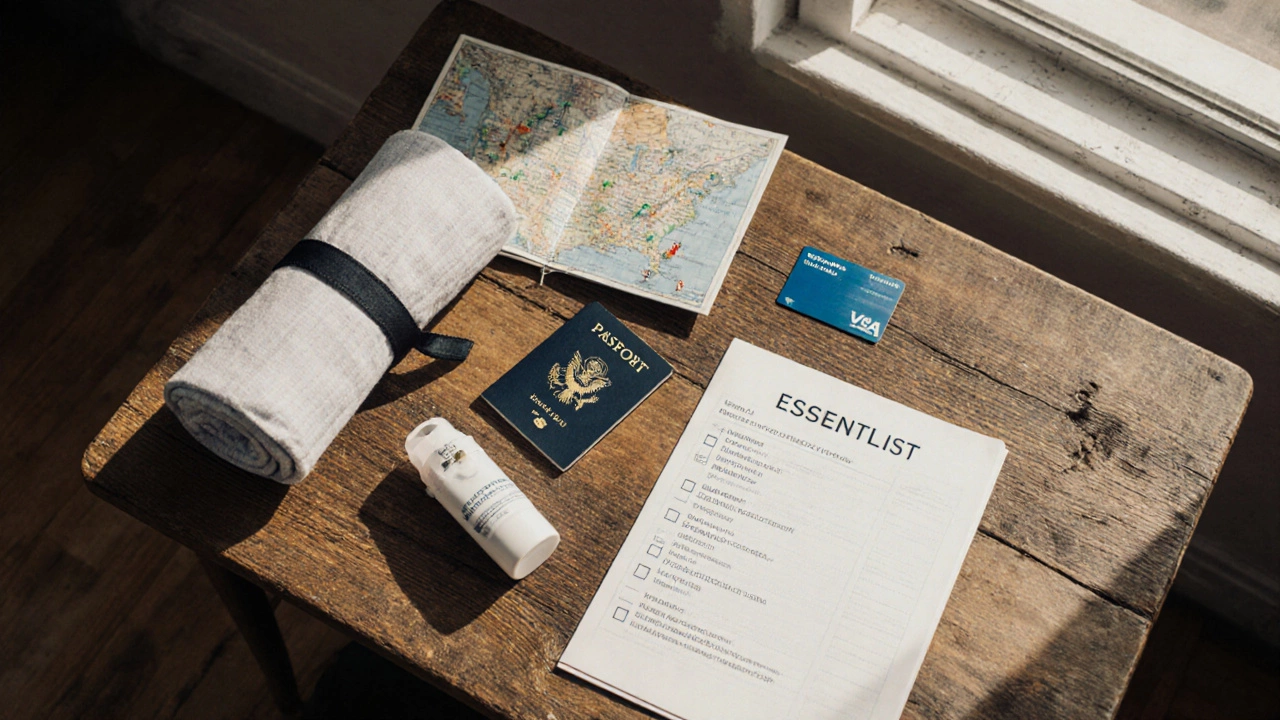Cheap City Break Cost Estimator
Estimated Trip Cost
Looking for a quick escape without blowing your budget? A cheap city break can give you culture, food, and nightlife in just a few days, and you don’t need a massive bankroll to make it happen. Below you’ll find every trick a savvy traveler uses-flights, lodging, activities, and timing-so you can pack a suitcase, hop on a train, and start exploring without panic‑induced math.
Pick the Right Destination and Timing
Off‑peak season is the single biggest lever for slashing costs. Major European capitals, for example, see a 30‑40% dip in hotel rates from November to March when business travel wanes and tourists take a break. Mid‑week travel also trims airfare by 10‑20% because airlines fill seats that would otherwise sit empty.
Use a simple rule of thumb: if you can be flexible by even one day, check the price difference. Most flight search engines show a calendar view with price trends-grab the cheapest window and lock it in.
- Target cities with good public‑transport connectivity (e.g., Budapest, Porto, Krakow).
- Avoid major holidays like Christmas or local festivals unless you want to pay premium prices.
- Consider “shoulder months” - the period just before or after peak season.
Find Ultra‑Cheap Flights or Alternative Transport
Budget airlines such as Ryanair, easyJet, and Wizz Air dominate short‑haul routes across Europe. Their base fares can be as low as $15 if you book 4‑6 weeks ahead and travel with only a hand‑carry.
Don’t forget alternative transport:
- Bus networks like FlixBus or Megabus regularly beat flights on price for distances under 500km.
- Train passes (e.g., Eurail Global Pass) can be cost‑effective if you plan to hop between multiple cities.
- Car‑sharing services such as BlaBlaCar let you split fuel costs with locals headed the same way.
Pro tip: sign up for airline newsletters and set price‑alert bots (e.g., Skyscanner alerts) - you’ll get a notification the moment a route drops below your target price.
Secure Budget‑Friendly Accommodation
Hostels have evolved from dorm‑only spaces to boutique properties with private rooms. Prices range $15‑$35 per night in most Central‑European cities.
If privacy matters but you still want a low price, compare three main options: hostels, budget hotels, and short‑term rentals. The table below breaks down core attributes:
| Type | Average Nightly Rate (USD) | Privacy Level | Typical Amenities |
|---|---|---|---|
| Hostel (private room) | 20‑30 | Medium | Wi‑Fi, lockers, communal kitchen |
| Budget Hotel (2‑star) | 35‑60 | High | En‑suite bathroom, reception desk, sometimes breakfast |
| Airbnb/short‑term rental | 25‑55 | High | Kitchen, living space, local host contact |
Tip: book through platforms that offer “free cancellation” - you keep flexibility for price drops.

Leverage Travel Deals, Discount Codes, and Loyalty Programs
Travel deal websites like HolidayDeal, Skyscanner Deals, and Groupon often bundle flight + hotel packages at a 15‑25% discount.
When you find a deal, search for coupon codes on sites like RetailMeNot or Honey. Many airlines and hotels release exclusive codes to newsletter subscribers, so a quick sign‑up can shave another $5‑$10 off per booking.
Don’t overlook loyalty programs: even free‑standing budget chains (e.g., Ibis Budget) have points schemes that translate into free nights after 5‑7 stays. A single credit‑card that rewards travel purchases (5% cash‑back on travel) can recoup a sizable chunk of your expenses.
Eat Like a Local, Not a Tourist
Public transport food markets-think Barcelona’s La Boqueria, Istanbul’s Kadıköy market, or Berlin’s Markthalle-serve meals for $5‑$10 that rival restaurant prices.
Smart strategies:
- Grab a “menu of the day” (often called ‘plat du jour’ in French cities). It’s a fixed‑price, multi‑course meal for under $12.
- Use apps like Too Good To Go to buy surplus food at the end of the day for a fraction of the menu price.
- Street‑food stalls typically accept cash only; keep a small amount of local currency handy.
Plan Free or Low‑Cost Activities
Every major city offers a set of free attractions:
- Paris - free entry to the permanent collections of the Musée d’Art Moderne du 20ᵉsiècle on the first Sunday of each month.
- Amsterdam - stroll the historic canals; city‑run walking maps are free at tourist info points.
- Prague - explore the Old Town Square and watch the Astronomical Clock chime.
Beyond free sites, look for city‑pass discounts that bundle museums, transport, and tours at a lower cumulative price. If you’re a solo traveler, join free walking tours (tip‑based) to get insider stories without a fixed fee.

Pack Smart to Avoid Extra Fees
Airlines charge $25‑$45 for checked bags on low‑cost carriers. Preserve your budget by mastering the art of a carry‑on:
- Use a compressible backpack (max 22×14×9in) that fits the cabin dimensions.
- Roll clothes instead of folding-adds 30% more space.
- Wear your bulkiest shoes and jacket on the plane.
A lightweight travel‑size toiletries kit (under 100ml each) keeps you within the liquid restrictions and avoids buying pricey airport bottles.
Safety, Insurance, and Peace of Mind
Travel insurance may seem optional, but a $5‑$10 daily policy protects you from unexpected medical costs or trip cancellations-both of which can instantly erase any savings.
Choose a plan that covers:
- Emergency medical evacuation
- Trip interruption
- Lost luggage (up to $1,000)
Many credit cards bundle insurance at no extra charge if you purchase the flight with the card.
Checklist for a Cheap City Break
- Set a flexible travel window of ±3 days.
- Search flights using a price‑alert tool; book the lowest fare.
- Choose accommodation from the comparison table that matches privacy needs.
- Apply any discount codes or loyalty points before checkout.
- Download a local public‑transport app (e.g., Citymapper) to plan cheap routes.
- Identify 3‑4 free attractions and one paid activity that offers a discount with a city pass.
- Pack a carry‑on only; keep toiletries under 100ml.
- Purchase a travel‑insurance policy that covers medical and trip‑cancellation.
Frequently Asked Questions
What is the cheapest time of year to take a city break in Europe?
Traveling during the off‑peak months-typically November through March-cuts accommodation costs by 30‑40% and often yields cheaper flight fares as well.
Are budget airlines safe and reliable?
Yes. European low‑cost carriers are regulated by the EU and must meet the same safety standards as legacy airlines. Punctuality can vary, so build a buffer of at least an hour between connections.
How can I find discount codes for hotels?
Sign up for hotel newsletters, follow the brand on social media, and check coupon aggregators like RetailMeNot. Many hotels release exclusive codes to subscribers during low‑season periods.
Is travel insurance worth it for a short city break?
Even a short trip can encounter medical emergencies or sudden cancellations. A basic policy costs around $5‑$10 per day and can save you hundreds, if not thousands, in unexpected expenses.
Can I use public transport passes to save money?
Most cities sell day or multi‑day transit passes that cost less than purchasing single tickets per ride. For example, a 72‑hour Berlin ABC ticket is €23 (≈$24) and covers trams, buses, and U‑Bahn.
